European Athletics taskforce apologises to GB athletes over world records
- Published
Athletics world records: Eight famous records which could be lost
British athletes who may lose their world records have received an apology from the man responsible for the controversial anti-doping proposal.
Paula Radcliffe, Jonathan Edwards and Colin Jackson are among "collateral damage" says European Athletics taskforce chair Pierce O'Callaghan.
But he told BBC Radio 5 live: "There is a bigger picture out there."
All pre-2005 records could be rewritten under the new rules, which need to be ratified by governing body, the IAAF.
O'Callaghan said: "Apologies to the athletes, we never intended to damage their reputation and legacy. It is intended to give the public belief and credibility in what they are watching in the sport."
But BBC athletics commentator and former world 1500m champion Steve Cram called the proposals an "easy route out" and "a PR exercise".
Cram set world records for the 1500m, mile and 2,000m in the space of 19 days in 1985, and still holds the European records for the latter two distances - although under the proposals those pre-2005 European records would join world records in being reset.
He added that the measures are "not going to stop people cheating".
Whole of my career under threat - Jackson
The IAAF (International Association of Athletics Federations) has only stored blood and urine samples since 2005 and current records that do not meet the new criteria would remain on an "all-time list", but not be officially recognised as records if the IAAF accepts the proposal.
European Athletics president Hansen said he would encourage the IAAF to adopt the proposal at its August council meeting, while IAAF president Lord Coe said the changes were "a step in the right direction".
The world records to fall would include Edwards' triple jump mark of 18.29m - set in 1995 - and Jackson's 1994 indoor 60m hurdles world best of 7.30secs, as well as Radcliffe's marathon time of two hours 15 minutes 25 seconds, set in 2003 using two male pacemakers.
O'Callaghan compared the changes to English football introducing the Premier League above the First Division in 1992 and rugby union's Five Nations becoming the Six Nations in 2000, and said the records will be "recalibrated".
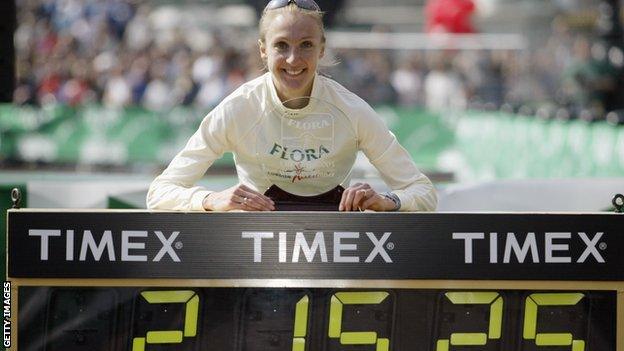
One of the records under threat is Radcliffe's marathon mark of two hours 15 minutes 25 seconds, set in 2003 using two male pacemakers
"We hope people look at it in that vein, rather than stripping great athletes like Paula of their records," added O'Callaghan, who said he had spoken to Radcliffe and Edwards.
"Unfortunately Paula ran her records in a golden period that happens to be two years before the technology moved on.
"People should not look at Paula's records and throw them in with doping records - she achieved her performance, as did Jonathan, with 100% integrity.
"This is about the bigger picture of reform in athletics and ensuring the public in events like the London World Championships [in August 2017], that they can believe what they are watching."
Radcliffe criticises plans to wipe records
What are the taskforce's proposals?
If the proposals are accepted by the IAAF, a world or European record would only be recognised if it meets all three of the following criteria:
It was achieved at a competition on a list of approved international events where the highest standards of officiating and technical equipment can be guaranteed;
The athlete had been subject to an agreed number of doping control tests in the months leading up to it;
The doping control sample taken after the record was stored and available for re-testing for 10 years.
More than 100 Olympic athletes who competed at the 2008 and 2012 Games have been sanctioned for doping after the International Olympic Committee embarked on a programme of retesting old samples.
But Radcliffe has called the proposals "cowardly" and accused the governing bodies of "failing clean athletes"., external
Jackson added: "They are making excuses on why they are doing it. I think it is a wrong reason why they are doing it. We all understand the situation with doping but it is not the fault of the clean athletes."
Analysis - 'It lumps us in with the cheats'
Steve Cram, former world 1500m champion, now BBC athletics commentator
We are all trying to make sure we look at ways we can improve the integrity of our sport but this smacks to me as an easy route out. There are massive issues for the sport to contend with and this, for me, is almost a PR exercise.
I can't believe that if the public don't have credibility now that they are going to have it going forward. I don't think it changes much. It's very confusing for people, and it's going to affect everybody all the way down.
It lumps us all in with those cheats. It's not our fault that over the years the sport did not police itself properly. It's not our fault they didn't do their job. I don't think it's going to change anything. It's not going to stop people cheating.
I was chatting with the president of European Athletics and asked "have you thought this through?". I am not convinced they have. All the member federations of European Athletics will have to scrap their national records because you can't have a national record quicker than the European record, and so on.
Part of the worst aspect of it is that in the document that they are putting forward, they are talking about preserving the dignity of the athletes as well. It's about preserving their own dignity.
It's an easy cop out. They haven't been able to make the tough decisions. If there are records that they believe that shouldn't be on the books then they should go after those with whatever scrutiny they have can. If they can't do that, then this is their problem to deal with.
We all lose our records eventually. It's fine somebody comes along and breaks it but what is not fair is that the federation decides that is not the record any more. As a broadcaster, what do I say to the public?
In the early days, there was no drug testing, did we scrap all of those records? No. Then, drug testing was introduced and now we have tougher drug testing. That's fine, we all accept that. Maybe some things slipped through the net in the past but you can't keep drawing a line every five years.
The farcical thing they are going to end up with, is that there will still be people holding records who have had a ban - but the records they set were before the ban and those will still stand. Somebody fails a test in 2015 and then all of their performances for that period are scrapped. But if they set a record in 2012, that stays. That's silly.
- Published2 May 2017
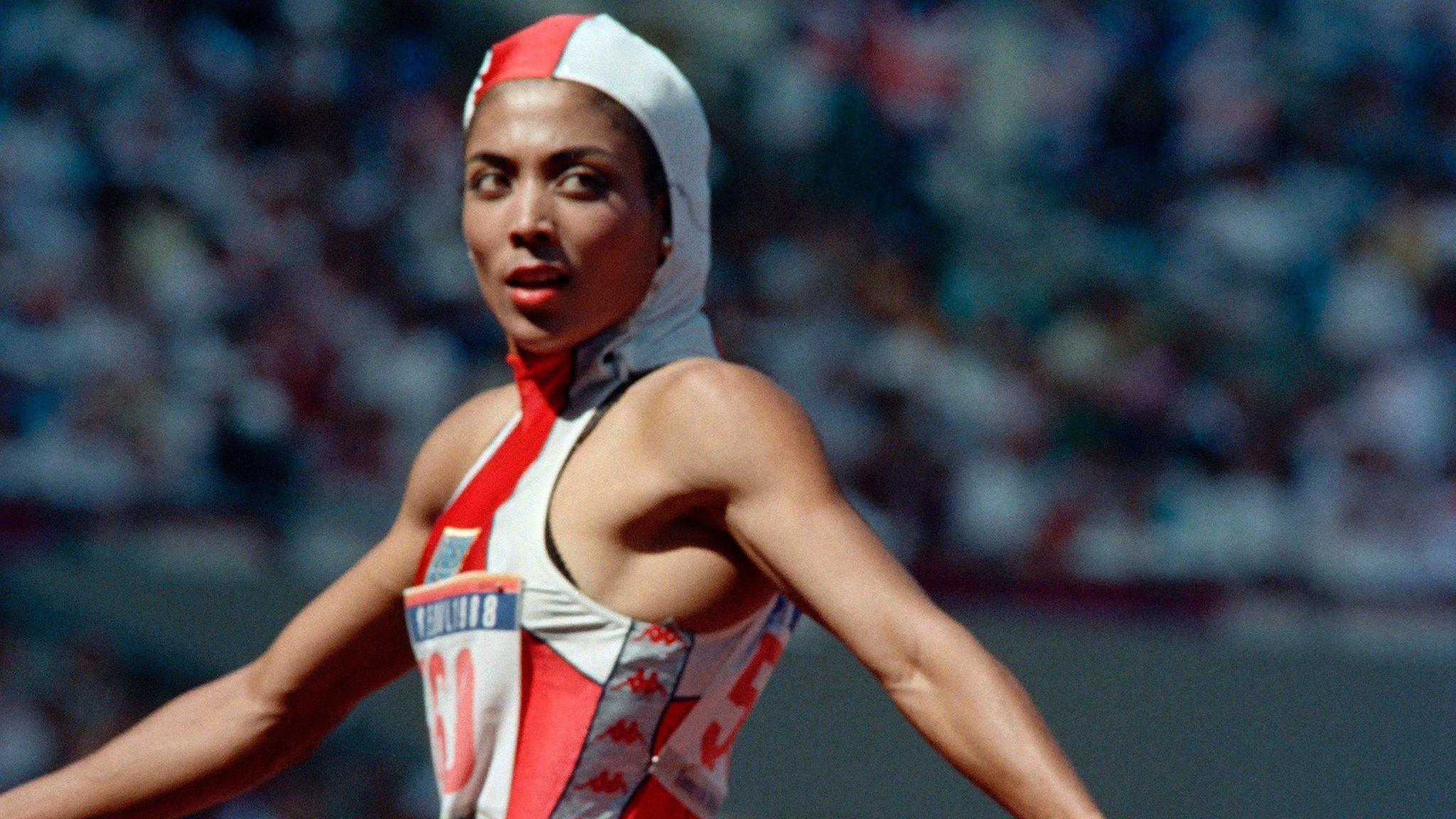
- Published2 May 2017
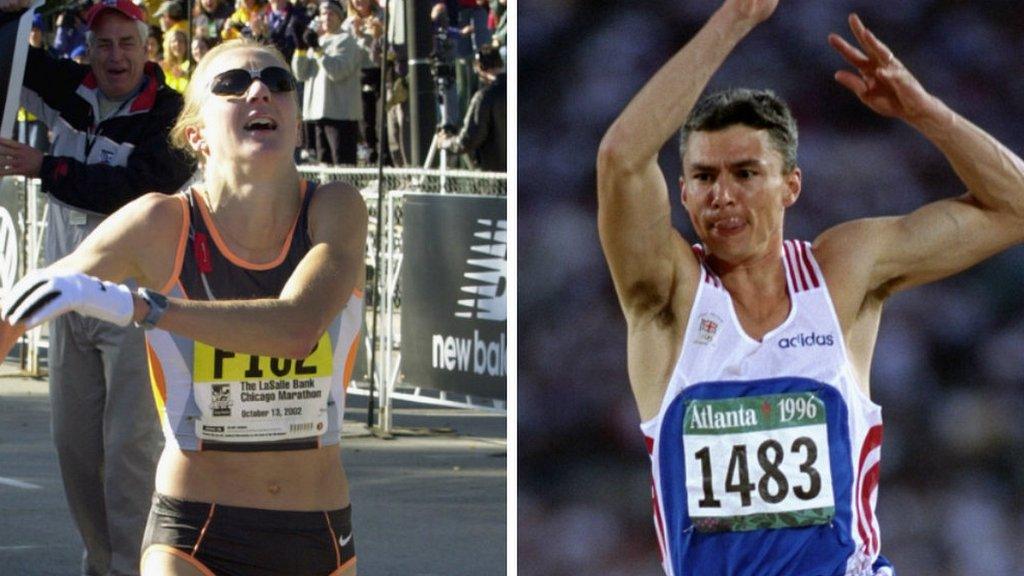
- Published2 May 2017
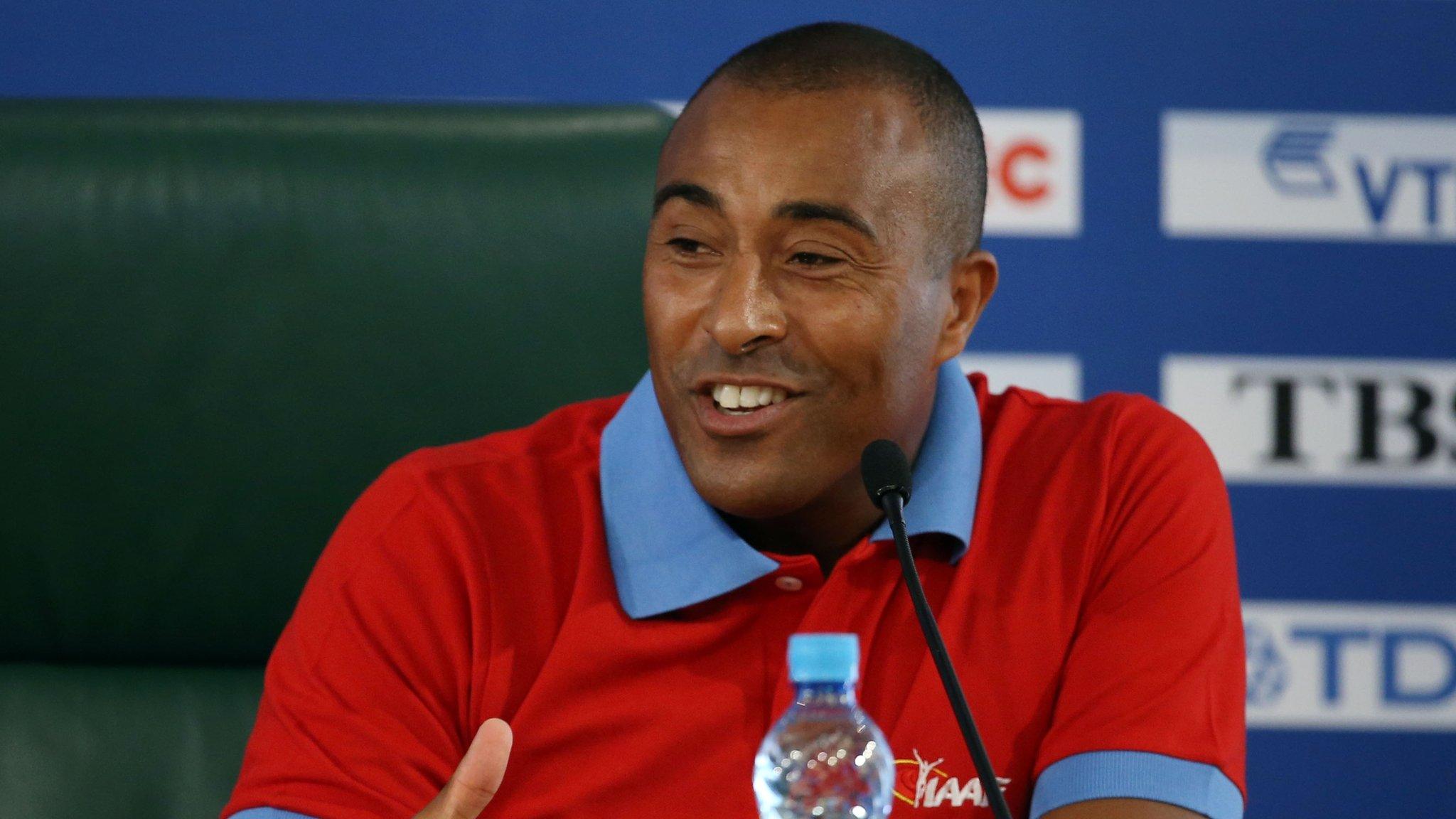
- Published26 January 2017
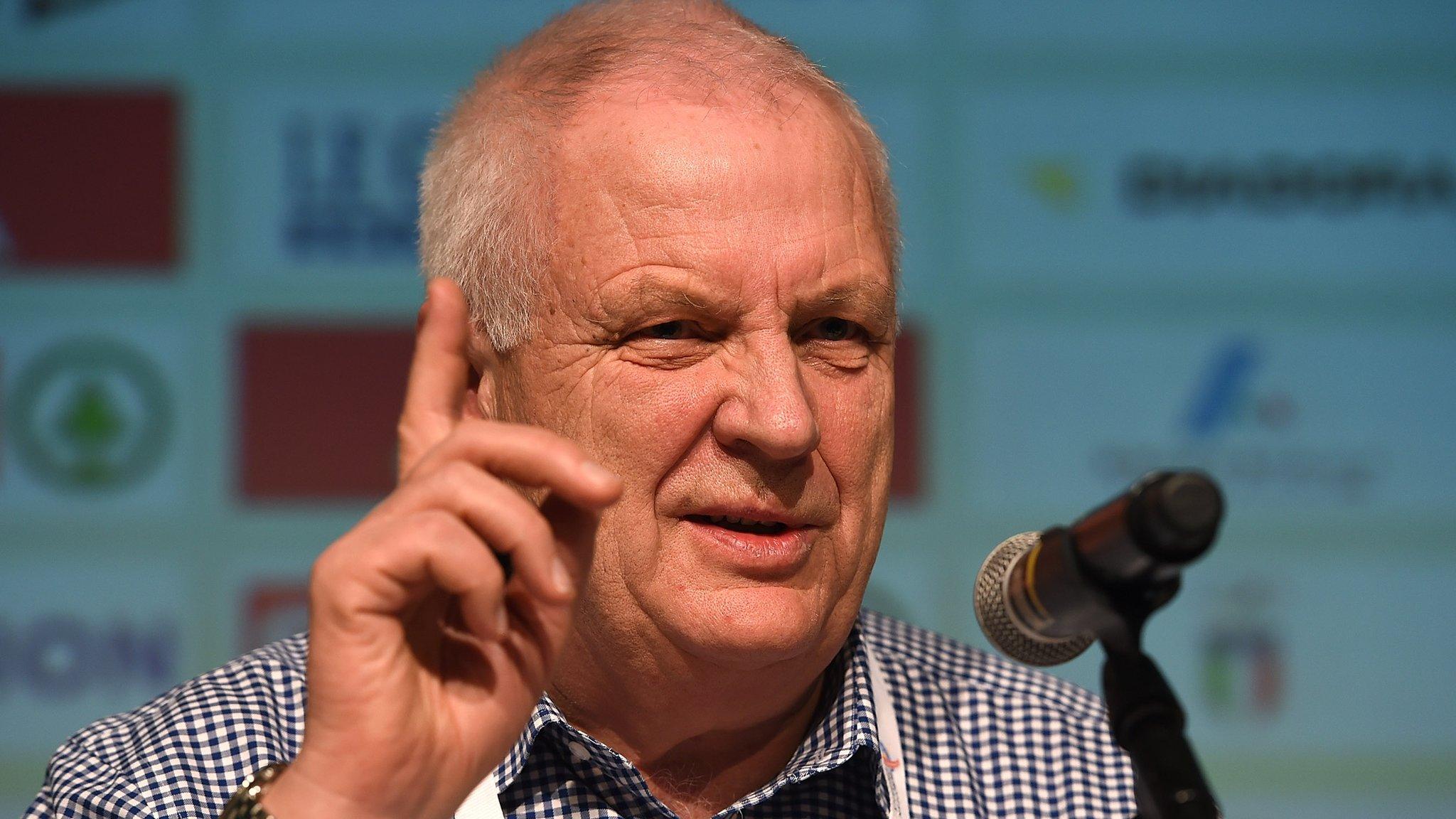
- Published3 March 2018
